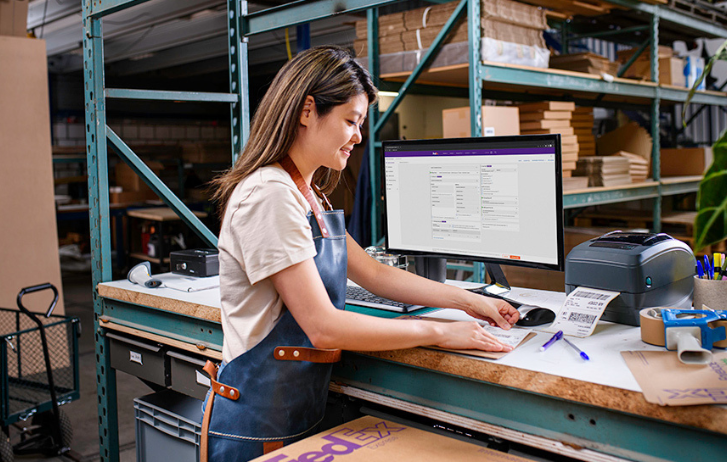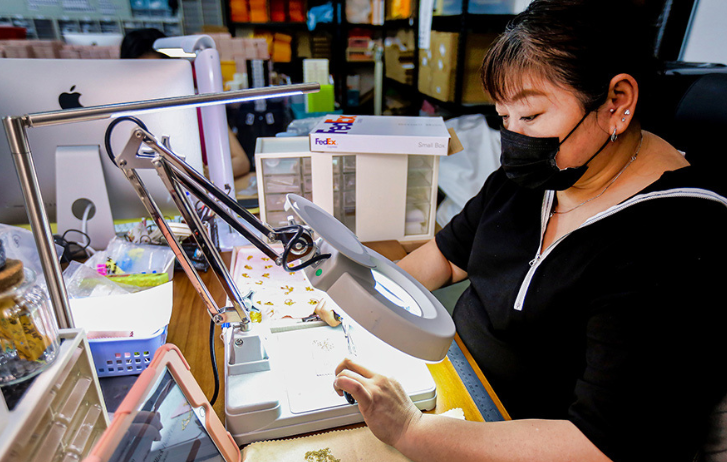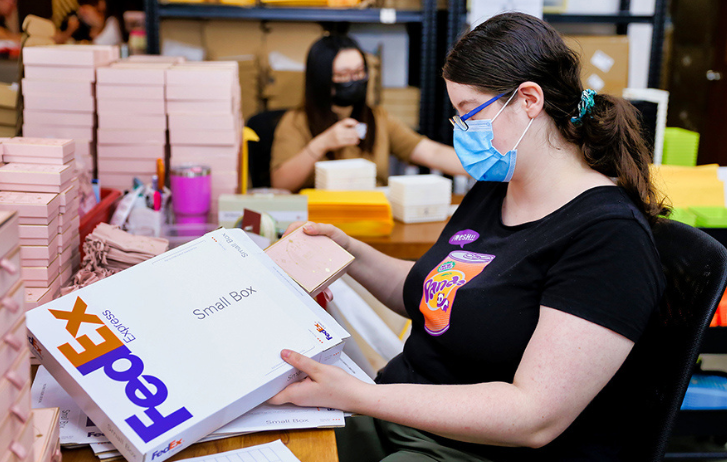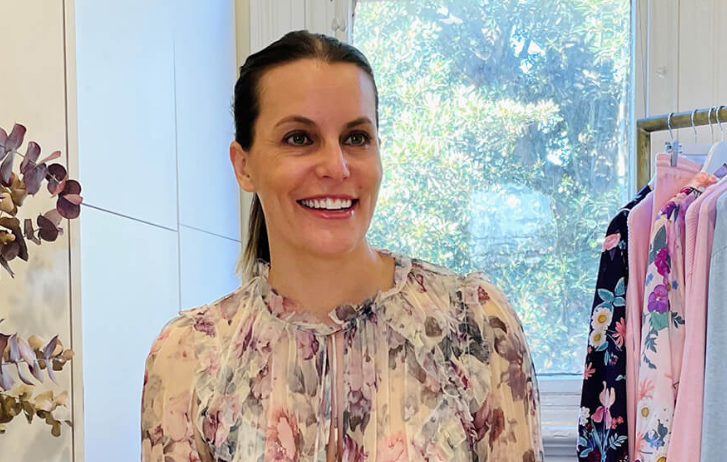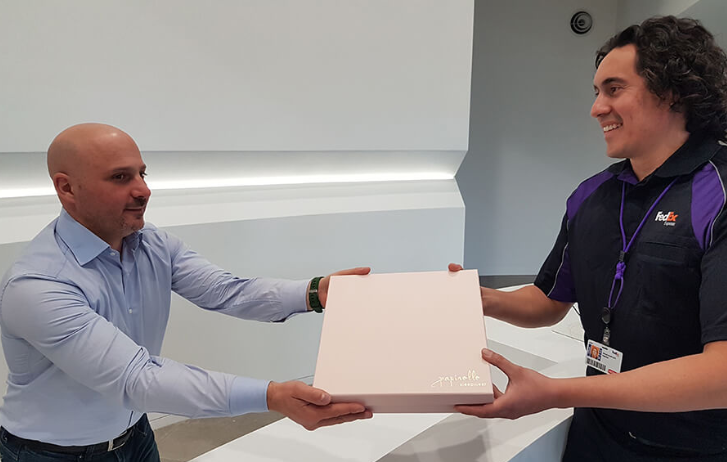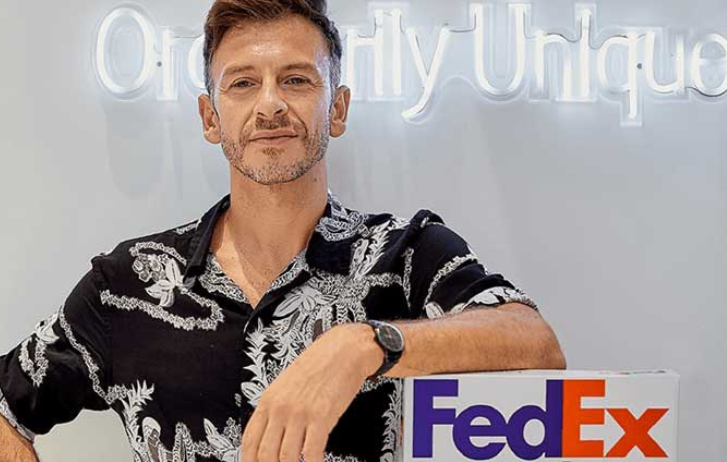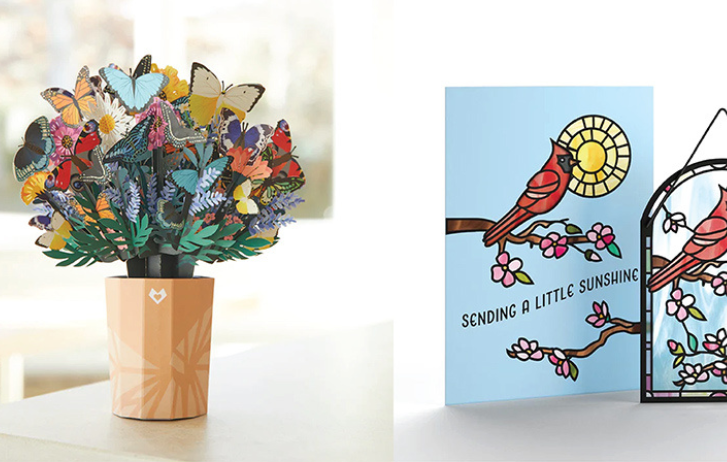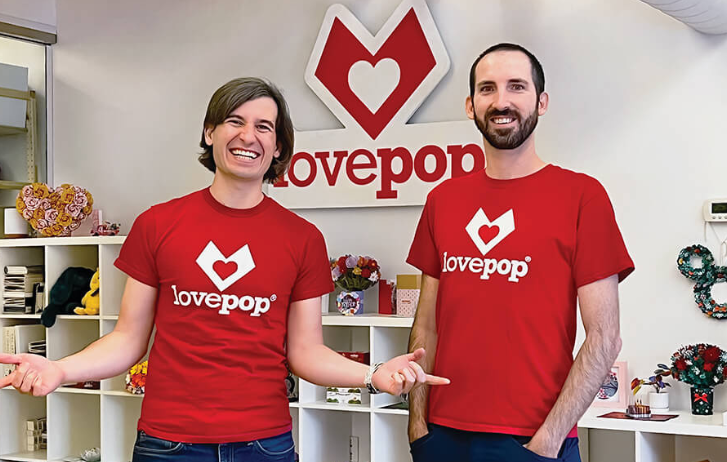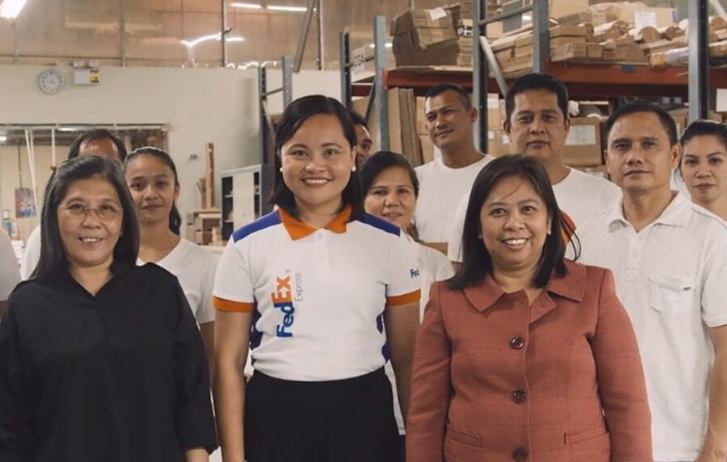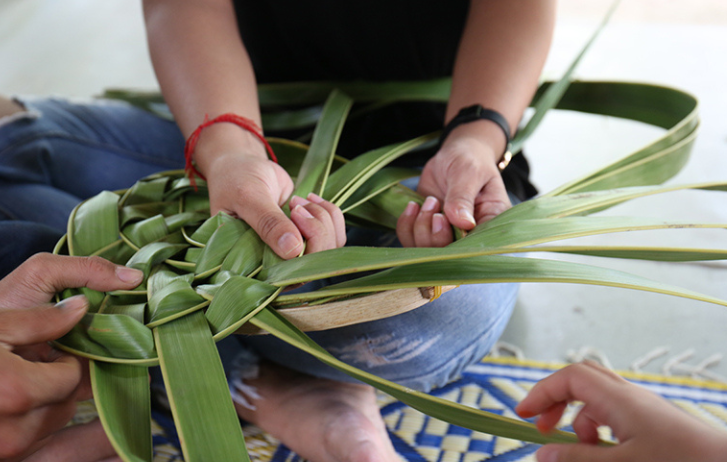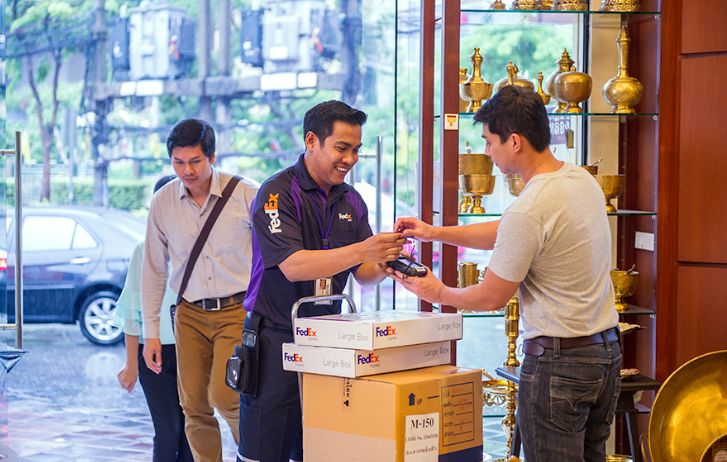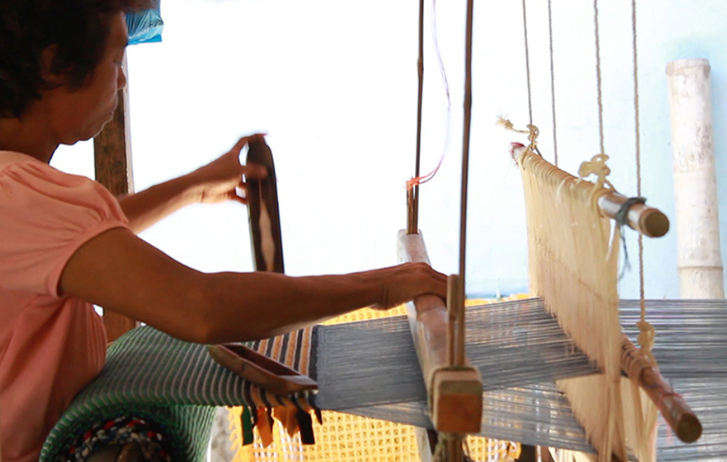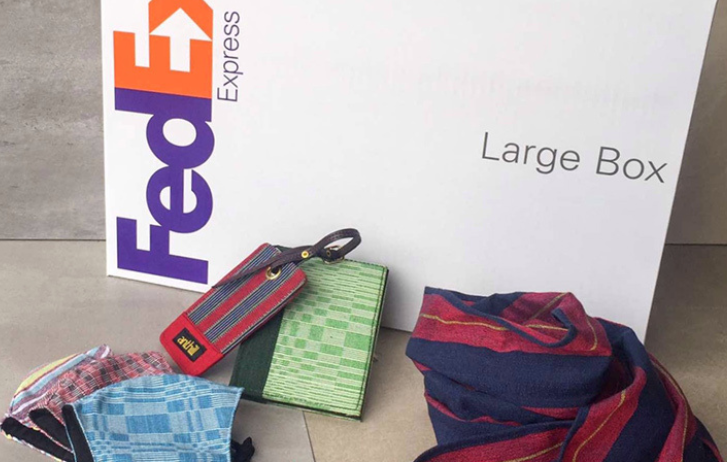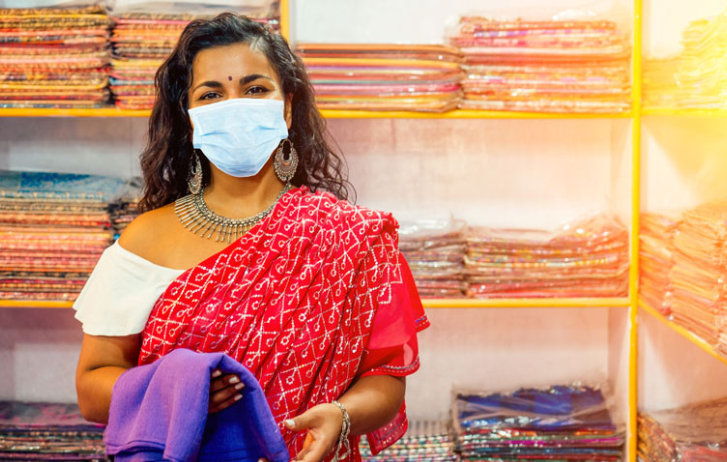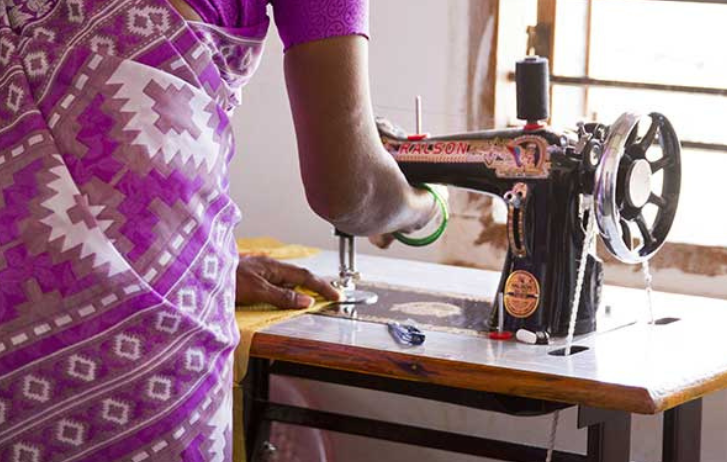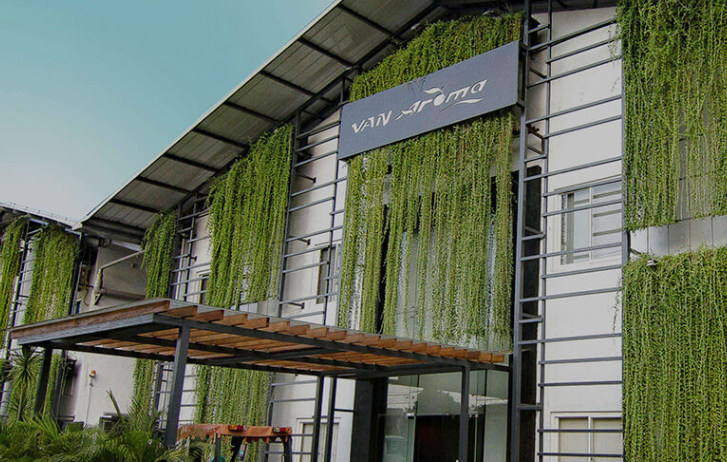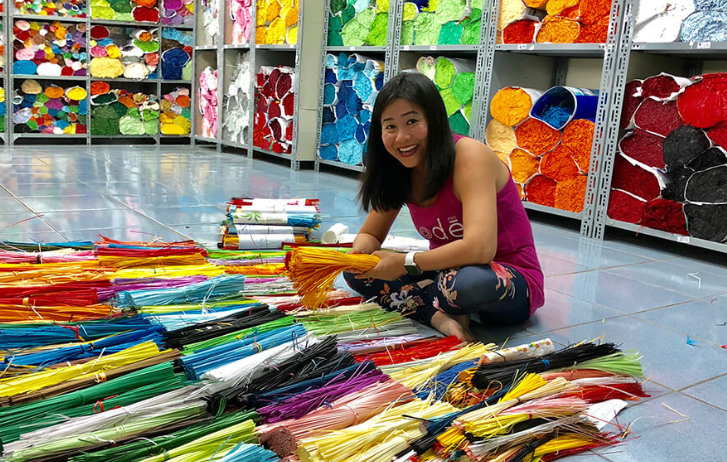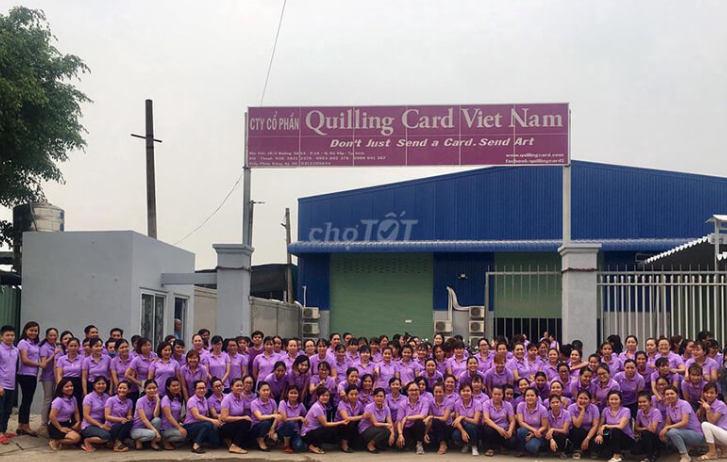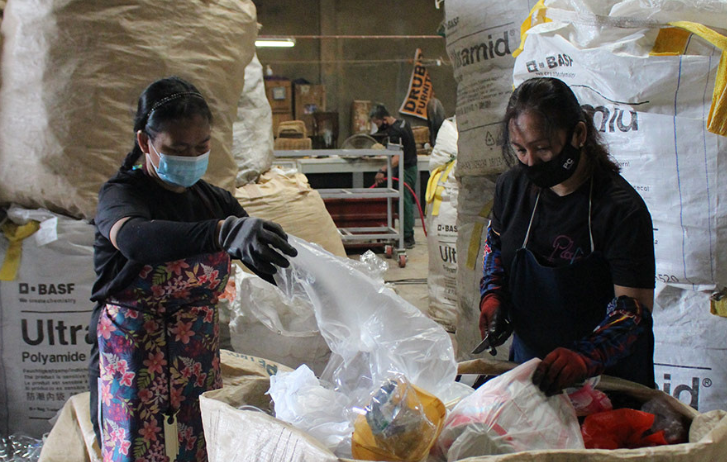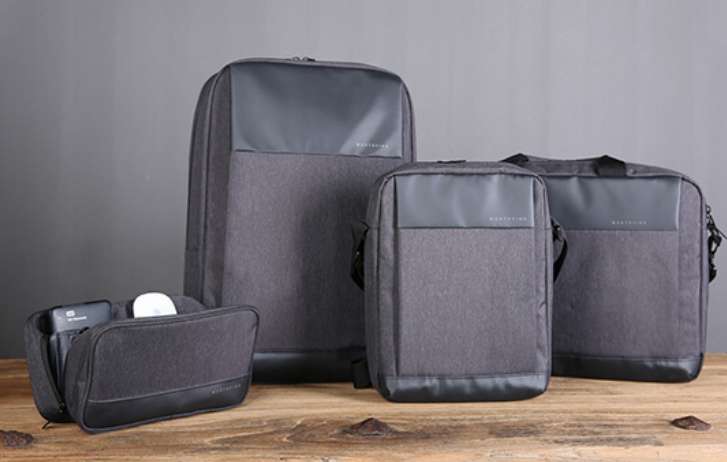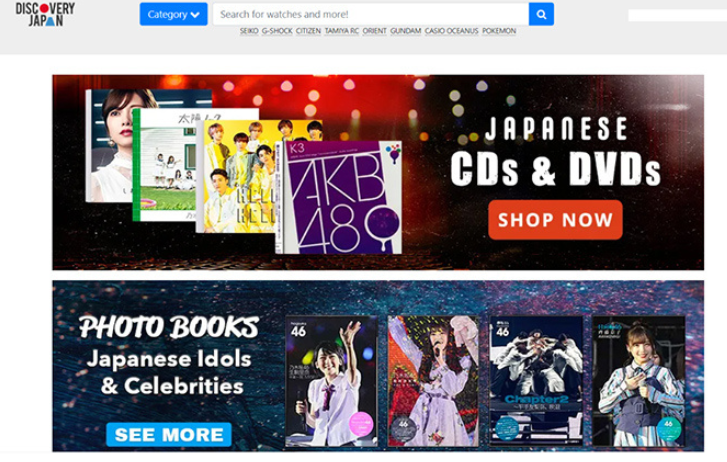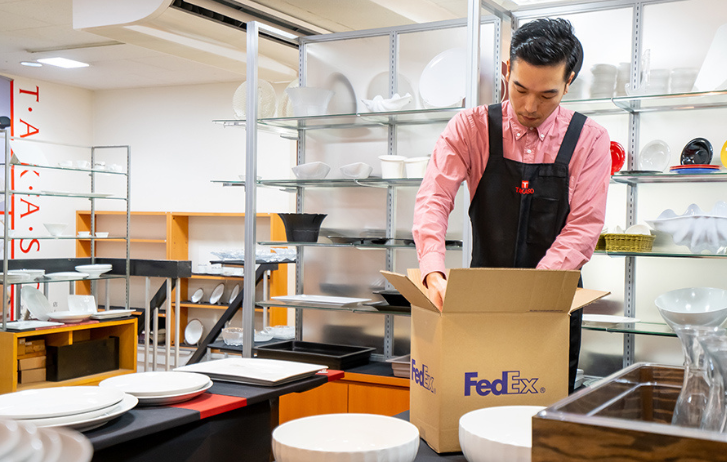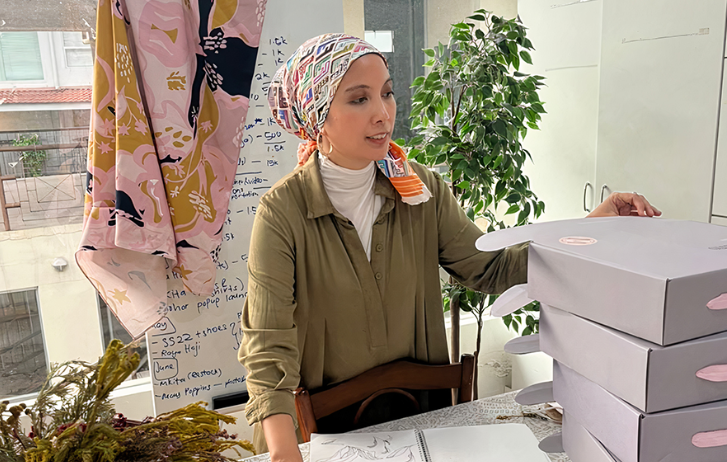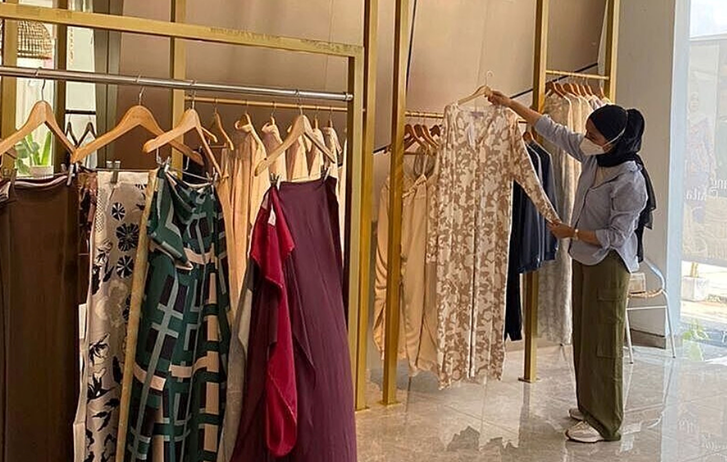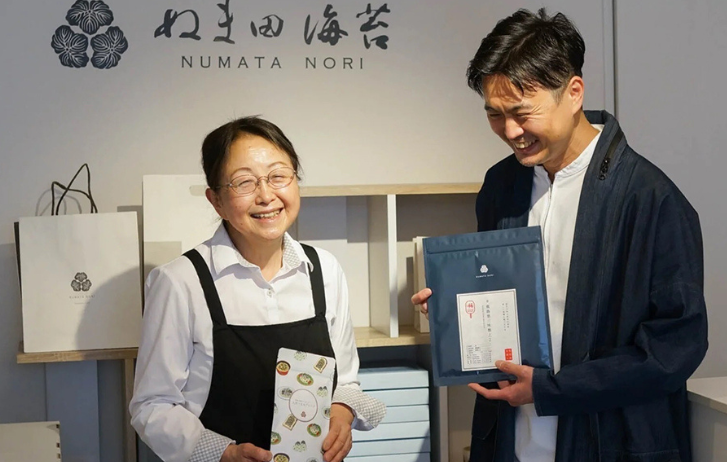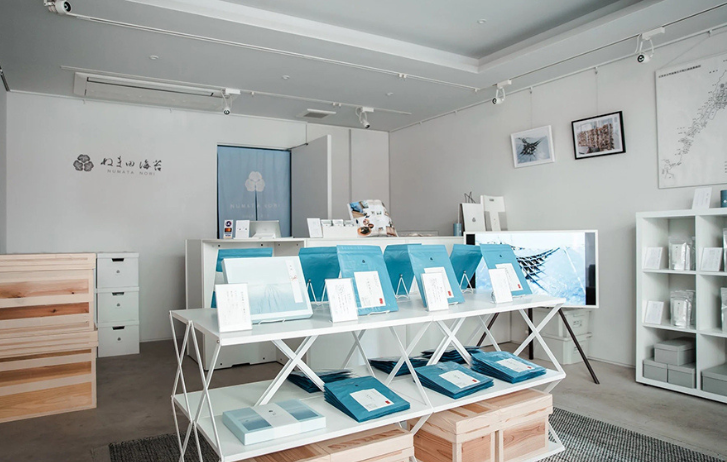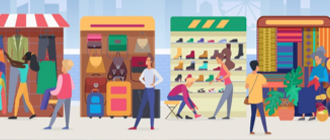
How To Start A Small Business In Asia
By FedEx | First published: April 1, 2021 Updated: May 21, 2024
From artisan crafts to digital solutions, we spoke to a range of small businesses in Asia for tips on bringing your products to new global audiences and expanding your business through e-commerce.
Whether you’re selling bicycles or beeswax wraps, the diversity and scale of small businesses in Asia is immense. This monumental scope – and rapid growth of mega-markets like India and China – has made the region one of the most successful SME launchpads in the world.
And the possibilities just keep on multiplying. Growth projections for start-ups and SMEs continue to rise. This, in part, is due to more businesses understanding the importance of an online presence and adoption of greater tech and digital solutions to reach global audiences.
What makes the region so exciting? In the retail space, Asia’s rich diversity of culture is reflected in product offerings; everything from artisan textiles to bountiful agricultural wares.
Super-accelerated digitalization is driving growth too, helping smart SMEs leapfrog into new markets. Opportunities for global, Asia-Europe and intra-Asia trade can’t be ignored, especially when fueled by recent free trade agreements: a boost to Asian businesses looking to expand globally. After gaining momentum and establishing a domestic following, many entrepreneurs have shifted focus to take their locally sourced products to neighboring markets and beyond.
FedEx has supported small and medium businesses in Asia Pacific for decades. And we’re in a unique and exciting position; helping SMEs in all kinds of sectors catapult from local, domestic enterprises to serious international players.
We’ve watched innovation unfold all around us and are proud to have been part of so many success stories. We’ve also witnessed extraordinary feats of grit and resilience from the region’s SMEs.
Our experience supporting SMEs in Asia through endless growth and recovery cycles can provide essential takeaways for businesses of all sizes. Read on for the inside track on small business heroes making a lasting impression on local communities and global customers.
Lesson 1: Believe in your product
Identifying gaps in the market and anticipating future customer needs are crucial for SME success. Miso, a South Korean cleaning business, seamlessly connected online-to-offline (O2O) services for customers.
Founded by Victor Ching in August 2015, the company started out offering home cleaning services. Since 2019, it has grown to offer a wider range of lifestyle services.
In 2021, FedEx collaborated with Forbes Asia to identify future-ready small businesses and start-ups from its Forbes Asia 100 to Watch list. This is how judges from FedEx and Forbes Asia found Miso, recognizing their unique business plan that helped fill a service gap in the Korean economy. Miso was awarded the Special Mention recognition at the 2021 FedEx Asia Pacific Small Business Grant Contest (SBGC) and a cash prize of USD 13,000.
With the South Korean home cleaning market expected to grow annually by over 3% in the next 5 years, Victor pinpointed how Miso could capture this projection. He noticed that the traditional home cleaning market had many rigid requirements such as a minimum service time of four hours and offered varying quality of service providers. Victor believed that a hotel-like home cleaning service at an affordable price would appeal to a wide range of customers.
Miso built a data-driven platform connecting customers to providers at lower prices than existing competitors. The company’s technology facilitated a dual advantage system where customers could select cheaper but quality services, while cleaners could be more selective in choosing jobs based on location and wage.
Victor understood the importance of customer service and a strong digital platform to power Miso. The platform’s technology can make smarter recommendations to both customers and service providers.
Additionally, all Miso employees start their first weeks by spending time with customers and service providers to understand their needs. Miso believes these are key requirements to create good customer service in the digital and physical world.
Today, Miso has grown to become the top home service platform in South Korea. The company offers over 70 different services including moving services, interior repair and more.
With a full-time job working in fashion, Jenny Kwang, the founder and creative director of J&Co Jewellery, began making jewelry as a fun, after-work hobby. What started as a passion project personalizing jewelry designs for friends and family has grown into an online store with global customers.
Jenny focuses on bringing hand-crafted pieces from Singapore to customers in international markets, powered by an easy-to-use website and a strong international logistics network.
We are here to create an inclusive community, where customers don’t have to break the bank for a well-crafted pair of earrings or necklace.
“It was really a hobby at first, as I found it difficult to find jewelry that was good quality and lasting, yet affordable – so I thought about trying to make them myself. I started selling my creations at a marketplace in the US and on Etsy, and surprisingly, many customers loved them, and word spread far and wide”, shares Jenny.
“We are really here to create an inclusive community, one where our customers don’t have to break the bank to access a well-crafted necklace or pair of earrings”, adds Jenny. “Our conversations with women from all walks of life inspire us, and they come back and spread the word because they feel beautiful wearing the items we create.”
Scaling up to meet demand meant finding the right delivery partner – a crucial step to ensuring that orders were met, and each delivery experience was nothing short of excellent. This was especially important during peak shipping seasons – such as Christmas, Black Friday and Lunar New Year.
“Finding the right global logistics provider was very important to us, and we needed one that was reliable and could ship everywhere,” shared Jenny. Packages needed to arrive promptly and be handled safely and without damage.
“Customers come to shop on our website from all over the world – from the US, Japan, Switzerland, Australia, the Netherlands and Singapore. Once they place the order, they expect delivery to be prompt and made with zero damage to the product – a universal customer need.”
As an e-commerce business that embraced digitalization to better serve their young customers, Jenny found that the innovative digital tools offered by FedEx were very useful. In particular, FedEx® Electronic Trade Documents (ETD) offered a simple and efficient solution to ensure smoother customs clearance processes to help J&Co process international deliverables electronically and with paperless invoices.
FedEx Delivery Manager® International also allows customers to keep track of their packages, arrange to pick them up at a nearby location and get delivery notifications on Whatsapp, amongst other tracking services – all done digitally at one’s fingertips.
Jenny is ready to embrace technology further – from using more automation in production, to integrating it into order fulfilment and shipping. E-commerce is a prime avenue for retailers, and more can be done to improve efficiency and better serve the needs of jewelry lovers worldwide.
Lessons 2: Find your audience online
A high-profile digital and social presence is crucial for SMEs who want to find new international customers and broach new markets. A new generation of customers have sprung up, all accustomed to finding products and services in a couple of swipes.
Social platforms like TikTok and Instagram are tailor-made for showcasing consumer products in lifestyle fashion and accessories sectors. Take Papinelle, for example.
Founder and CEO Renae James started Papinelle in 2005 straight out of university, setting up a stall at the Paddington Markets in Sydney. Despite the brand’s humble beginnings, Renae gained popularity in Australia with her collection of floral feminine sleepwear. In 2015, Papinelle took the decision to reach new customers in the US after noticing demand was unexpectedly strong.
“We saw a positive response from new international markets. There was an incredible appetite for loungewear and sleepwear that was not only ethically produced, but also comfortable and fashionable,” said Renae.
To facilitate a new market, Papinelle launched a dedicated Direct-to-Customer (D2C) website for the US. An online presence meant Papinelle needed to translate their brick-and-mortar experience into digital sales channels.
During the pandemic when people had to start working from home and consequently shopping online instead of in stores, Papinelle’s transition to an online platform added to the brand’s growing success. With a global surge in demand for loungewear, Papinelle was in prime position to cater to this new market.
However, Renae notes that business owners expanding internationally face a new set of rewards and challenges. This is especially true as the logistics landscape becomes increasingly complex, and businesses must find shipping solutions that meet time and safety expectations of international customers – who want to receive their orders quickly and without disruption.
“Papinelle was able to penetrate the US market thanks to the FedEx network, which has a particularly strong reach in North America. The ability to deliver to all zip codes in the US means FedEx can ensure Papinelle’s customers receive their packages in the least amount of time,” said Renae.
During the early stages of entering new markets, seamless cross-border reach is crucial for growing businesses. The extensive network FedEx has helped Papinelle maintain business continuity and achieve smooth delivery experiences.
“Customers expect a better experience than ever when shopping with you, including after they have gone through checkout. The delivery is as much a part of the customer’s experience of your brand, as your digital platforms and shipping options are,” said Renae.
“We use FedEx® Electronic Trade Documents which makes completing paperwork for shipping easy. It helps us easily upload our trade documents for clearance, and helps reduce printed copies. We’ve also found that it has helped reduce backlogs and costs,” said Renae.
“Our logistics partnership with FedEx has really delivered value for our business and helped us ensure the best experience for our customers, end-to-end.”
Another Asian accessory brand started by one founder with an intuitive understanding of the online social media landscape is Klasse 14.
After spending more than 10 years as a jewelry designer in Europe, Mario decided to start a new adventure in 2014 – moving to Hong Kong and designing watches. With an enthusiasm for creating stories through wristwear, Mario founded Klasse14 with his business partners. Ever since then, the brand has established a strong presence, both online and offline, in Hong Kong, Japan, mainland China, Malaysia, South Korea, Thailand, Taiwan and the US.
By launching social media campaigns to promote their brand, Klasse 14 was able to target niche demographics.
“Klasse 14 has secured a place in the market because we are not a typical, conventional watch company,” shares creative director and co-founder Mario Nobile.
“We are a fashion and lifestyle brand instead. Our target customers are bold, digital native millennials. Social media is the ideal platform to connect with them. Apart from our dedication to bringing forth impressive designs, collaboration is another strategy we adopted. We seek to inject new perspectives and unexpected creations through partnership with other brands and designers,” Mario shared.
By launching social media engagement campaigns to promote the idea that “everyone is born to be unique and has their own personalities, talents and passion,” Klasse 14 targets niche demographics with products to suit all tastes.
Mario sees the importance of choosing a reliable logistics provider to create a promising shopping experience for customers. By doing this, Klasse14 gains trust from customers and builds long-term relationships with them.
When asked what advice he would give to small businesses and entrepreneurs, Mario maintains the most important thing is to believe in what you do: “You have to be clear about your goals and be resilient and patient on the way to achieving them.”
Lesson 3: Take advantage of timing
Hitting on the right place and right time is exactly how Wombi Rose and John Wise got started. During a college trip to Vietnam, the couple fell in love with decorative, 3-D cards and sought to bring their passion to a wider audience. As a result, Lovepop was born.
Stemming from a background in shipbuilding engineering and their love for Kirigami paper cutting, Lovepop created their own staple paper-cutting technique, SlicegamiTM. The popularity of Lovepop’s creative, innovative designs also drove the company to launch their business cards.
Lovepop gained wider recognition and attention after appearing on Shark Tank. Due to the seasonal nature of their products, it was clear that Lovepop needed to find a reliable logistics provider to adapt to high shipping volumes and ensure timely deliveries.
For a card company, an online presence was also crucial for Lovepop to grow their customer base. E-commerce has facilitated their growth to international markets beyond Vietnam in the US, Europe and other parts of Asia. Lovepop decided to partner with FedEx to offer reliable and seamless delivery of their products both locally and abroad.
Through their collaboration with FedEx, Lovepop witnessed improved delivery efficiency, expanded market reach, and reduced shipping costs. FedEx was able to ensure the timely delivery of Lovepop’s cards to thousands of customers globally, cementing Wombi and John’s mission to connect and bring people together.
Timely decision-making was also key for luxury goods brand Consummare. Consummare was first established through a predecessor called Exquisite, which had specialized in manufacturing jewelry boxes since 1994.
In 2008, the owners of Exquisite decided to cease operations. “The British owners pulled out, but they offered to turn over Exquisite’s assets,” shared Ralen Yco, President and CEO of Consummare. It was a pivotal moment.
Seizing the opportunity, Yco took on the business and started Consummare, Inc., as a fully female-led company in 2009.
With the rise of personalization in retail and e-commerce merchants striving to stand out to their customers, packaging has become more and more important with the growth of e-commerce. For Consummare, packaging is their product, meaning they can stay ahead of the curve.
In 2009, Yco and vice president Angelina Ela decided to use their takeover to steer the business in a new direction. “Jewelry boxes were not profitable because consumers don’t purchase them as frequently. With Consummare, we diversified our portfolio and concentrated on producing packaging for cigars, wine, and premium chocolates,” Yco shared.
The company specializes in laminated wooden boxes, and its services cover all aspects of packaging design, from developing the structure to manufacturing the products. As a small team of 33 employees, Consummare takes on a limited number of projects at a time and trains each member of their manufacturing team to be skilled in every aspect of production.
The company’s portfolio boasts several prominent global brands based in Switzerland, Germany, the UK, and US. “We produce cigar accessories, watch boxes, and eyewear boxes for several legacy brands,” Yco says. “We’ve also diversified into producing luxury bags for a well-known upscale department store in New York, and fashion accessories for a local designer.”
Yco cites the importance of a reliable and well-established logistics provider like FedEx, with whom they have been working since Exquisite began operating in 1994. Yco adds, “Working with FedEx has always been a smooth experience. Booking shipments online is easy. Couriers are also friendly and willing to adjust to delays, and assistance is provided with customs clearance.”
Through FedEx Ship Manager, businesses are able to monitor the cost and status of their shipments, generate customs clearance documents, and save time preparing shipments by saving frequently used information, as well as senders’ and recipients’ addresses.
Timing is one of the most crucial lessons that entrepreneurs and operators have learned because of the pandemic.
Yco says Consummare has earned the respect of its biggest competitors. “Our counterparts in China have lauded us for our capability to develop fine products that cannot be replicated through mass production,” she shares.
Both Yco and Ela have big dreams for the business. The company, having quietly worked behind the scenes since inception, is now strengthening its marketing initiatives to get more clients from other countries. “There are big opportunities in the Middle East, and we would like to expand our client base there.”
The bottom line? Timing matters. Consummare were waiting in the wings, jumping at an opportunity at just the right time to take over a company that was ceasing to trade. Agility matters too. When Consummare realised that some of their luxury boxes were designed for products people don’t buy often, such as watches, they swiftly diversified into boxes for cigars, chocolate and wine.
Timing is one of the most crucial lessons that entrepreneurs and operators have learned since the pandemic. When global lockdowns hit, retailers and suppliers who quickly pivoted to e-commerce were liable to recover their businesses faster – in some cases even flourishing more than before.
Another business that has been a staunch advocate for seizing the moment - and riding the e-commerce wave - is eCFULFILL.
The Philippines is home to thousands of small businesses. Many still practice traditional crafts, making or sourcing homegrown, artisan products that reflect the best of the island nation’s culture and natural resources.
But when the pandemic struck and the country followed the rest of the world into lockdown, many of these small enterprises – from family businesses to mom-and-pop shops – were unprepared for the new reality they faced. Having never branched out into an online presence, pivoting to e-commerce wasn’t easy.
That’s where eCFULFILL stepped in, leveraging the latest technology trends to provide a platform for brick-and-mortar stores to make the leap to online retail. The goal? To help these businesses tap new, remote markets overseas.
As a Filipino software company, eCFULFILL recognizes that Philippine-made products have a unique value in the global market. But many local SMEs who sell these products aren’t tech-savvy enough to market and sell them internationally or online.
To facilitate this and offer a gateway to e-commerce for beginners, eCFULFILL offers a cloud-based system that enables SMEs to directly sell their products on several e-commerce platforms using one simple solution.
This single-platform solution removes the many layers that businesses are required to go through before exporting and provides them with an easy and convenient route to expand globally. Dried mangoes, virgin coconut oil, and even handmade accessories are just some of the items that have been successfully launched through eCFULFILL.
How did the story start? Founder and CEO Neptune Factor had started selling locally-made toys and beauty products on a US-based e-commerce platform in 2015. Realizing there was a bigger market for local brands, he created a detailed process of selling on various global e-commerce platforms directly from the Philippines.
Factor and his team received the grants and support needed to launch in February 2020, just a month before the COVID-19 lockdown. The timing couldn’t be better. The solution proved valuable at a time when more than half of SMEs in the country had shut down, while the remaining half switched to operating remotely, moving from physical to digital selling.
The platform has since catapulted over 50 Filipino micro, small, and medium enterprises (MSMEs) to global marketplaces, opening up new possibilities for them.
Factor notes that FedEx was instrumental in helping the company improve its logistical infrastructure and process. SMEs are able to save on international shipping with FedEx by consolidating product shipments from two to three small businesses at a time.
This way, eCFULFILL gets to pass the discount on to the SMEs and their customers. Businesses can introduce their products to more than 220 countries and territories through FedEx’s extensive global network.
Check out how Filipino entrepreneurs are embracing e-commerce as a launchpad into new global markets.
Lesson 4: Look to real-life scenarios for inspiration
The everyday observations we make during daily routines can form the basis for a solid business. For some entrepreneurs, the inspiration behind start-ups comes directly from first-hand experiences or even childhood memories.
Many businesses in Asia continue to be inspired by local traditions – and are always looking for new ways to bring them to the world. Anya Lim, founder of ANTHILL Fabric Gallery, was raised by culturally proud Filipino parents who owned a textile business. Anya grew up with bedtime stories about the heritage of indigenous groups in the Philippines. Family vacations comprised of visits to local communities and weaving villages.
Anya’s inspiration to start ANTHILL was sparked when she returned to a village in Banaue in the Philippines. Artisans had left and it had turned into a ghost town, devoid of the “weaving, carving, and celebration of local culture” she had enjoyed as a child.
The fate of weaving was uncertain as younger generations were unwilling to inherit the craft.
Anya wanted to make sure that ANTHILL would have enough supply before creating demand and launching a business. The first five years of the enterprise’s operations focused on capacity building. They ensured that their community partners were ready for business. They provided leadership and financial literacy skills training, with the end goal of making the weavers self-reliant.
ANTHILL's first big break came in the form of a partnership with an established local cafe chain, providing textiles for furniture upholstery. They were featured in the establishment's merchandise section for social enterprises. “This allowed us to grow our visibility in communities like Abra, and gave us credibility,” Anya shares.
Since ANTHILL started, Filipino traditional weaving has made a resurgence. These vibrant patterns are incorporated into apparel, home decor, and other items admired around the world. Today, these products play a key part in Philippine exports with the fashion industry's demand for natural fabrics.
Today, ANTHILL’s biggest market lies in its global customer base, making up 80% to 90% of sales. Many of these clients, Anya says, are Filipinos living abroad who wish to connect to their roots.
ANTHILL began working with FedEx in 2017. "FedEx has provided tremendous support in our global expansion," Anya says. "Without them, we will not be able to serve our international customers."
ANTHILL has struck up partnerships with businesses in Europe, the US, Hong Kong, and Japan. To better serve them at lower costs, Anya and her team worked with FedEx to consolidate international shipments. "We crunched the numbers and came up with the costs and average rates that will fall within different locations and weight categories. This way, it's a win-win; our clients pay less on shipping, without affecting our bottom line."
In the Philippines, Bambike Revolution Cycles founder, Bryan Benitz McClelland, seized the opportunity to create more sustainable and local transport solutions in his home country. The idea for his business came from a real-life encounter with a similar product overseas. On a trip to Africa in 2007, Bryan came across an extraordinary mode of transport: a bicycle made from bamboo.
Realizing the abundance of bamboo in the Philippines, Bryan made his first Bambike on his return to the country in 2009. Bambike Revolution Cycles was founded a year later.
"Bamboo has inherent qualities that are perfect for cycling. These properties translate into a bike frame that is stiff enough to really crank on and make for a smooth ride.”
The company first sold their Bambikes in Intramuros, a historic walled city inside Manila. Their products range from all-terrain bikes such as the Luntian and Victoria, the sleek, bolt-together Bolt Series and ‘Bambino’ bikes for kids.
Sustainability and helping local communities are also key pillars of Bambike Revolutions Cycles. The company uses artisans from Gawad Kalinga, a Filipino development organization that aims to end poverty giving long-term job opportunities to the less fortunate. Bryan implements a ‘People – Planet – Progress’ philosophy, conscious of creating environmentally-friendly products available to customers while supplying jobs to those in need.
It wasn’t easy at the beginning and getting the business operational brought many hurdles. Bryan didn’t speak much Filipino which came at a particular challenge when he had to identify the right bamboo industry to develop his products. However, his preservation and motivation to research about bamboo, learn the language and serve the wider community by providing jobs are eventually what led to the company gaining momentum.
Bambike prides itself on utilizing local skills and knowledge to make their bikes. “Working with Filipinos has been incredibly fulfilling. We find ways to overcome language barriers. There is an abundance of innate talent, great work ethic and creativity to find solutions together."
Now, the company has set their sights on contributing to sustainable tourism and expanding into new markets. Bambike believes that teaching tourists about local heritage and choosing eco-friendly transport alternatives can bring mutual benefits.
FedEx has helped Bambike and other business owners transform their inspiring ideas into reality. FedEx continues to support the growing plans and environmental work the company is doing. As Bryan explains, “FedEx has been a great logistics partner. We know that when we send out products to customers all over the world, we can do so with trust and confidence. FedEx works hard to support small businesses and ensure our customers receive our product safely and as quickly as possible.”
Lesson 5: Build a business around your local community
Small businesses can be the lifeblood of local communities. And yet the smallest businesses or start-ups can be most vulnerable to crises such as natural disasters, extreme weather or – most tellingly – a pandemic.
Among the many adverse effects that have resulted from the pandemic, it’s been widely reported that women have been disproportionately affected.
But what if you’re female, in a low-income group and struggling to keep your business afloat? Chances are you’ll need even more support and guidance to get you through tough economic times.
India is home to 1.4 billion people; around 110 million of these are working for SMEs. And there’s been a rise in female-led or owned SMEs in recent years, thanks to government support. But with only around 14% of MSMEs majorly owned by women, they still have a long way to go.
Many of the businesses cover the range from modest, lone owner-operators selling street-food, fruit, handmade jewelry or incense to larger enterprises aimed at serving women – from beauty services to tailoring, dressmaking and tutoring.
For these small, self-starting SMEs, reliance on regular cash flow, access to steady customs and the ability to offer uninterrupted services is crucial. There’s a delicate balance between operating successfully and struggling to stay afloat – and it can be threatened by even the most minor setbacks.
Huge disruptions to global supply chains and a national lockdown? A recipe for disaster.
At FedEx, we recognize it’s a social and economic priority to provide women and minority entrepreneurs with the tools they need to succeed in times of uncertainty. We teamed up with community NGO facilitator United Way Mumbai to ensure that 400 women from lower income groups in India will receive essential support.
For more and more businesses these days, being ‘sustainability-led’ and ‘community-conscious’ are becoming real priorities. Purpose-driven commerce is gaining importance.
A great example is Van Aroma. Founded in 2006 by Sandeep Tekriwal, Van Aroma started as a small family business collecting and exporting nutmeg oil. But soon, the business expanded adding more distillation facilities in Padang, West Sumatra, Java and Sulawesi and began creating new scents from other natural extracts.
The family work closely with the local community to showcase the quality offerings Indonesia offers for fragrances. Van Aroma partnered with local farmers, delivering education on good agricultural practices and organic farming. “We work hand in hand with farmers and distillers. We built the company around the core principles of traceability, transparency, and ethical sourcing.”
Van Aroma’s first refinery was established in Jakarta in 2009 and the company have grown exporting homegrown fragrances to over 50 countries globally in the US and Europe. In 2022, they opened their first overseas facility in New Jersey, US to cater better to rising demand in the market. They’re now a leading supplier of Indonesian essential oils, aroma molecules, and botanical extracts.
Sustainability and caring for the local community have always been core values for Van Aroma. The company has invested in sustainable distillation technology in all their sites to reduce their environmental footprint. Currently, they are on track to be completely carbon neutral by 2030.
In Vietnam, small craft-based business Quilling Card is also on a mission to bring local traditions and products to the world.
Founded in 2011, Vietnamese entrepreneur Huong Wolf was eager to turn her much-loved hobby into a successful business. Working with locals, she set up her own handicraft business, Quilling Card, curating intricate handcrafted greeting cards which grew into a company of roughly 500 employees.
Quilling, the art of manipulating and arranging small strips of paper into detailed designs, has been around for centuries. This intricate form of artwork, which rolls, loops and curls paper into decorative shapes, is commonly found on greeting cards, boxes and jewelry.
Because quilling is a niche art, Huong spent three years training her staff, but only around 20% stayed on at the company. Despite this setback, Huong persisted because of her faith in the business. Vietnamese people have been known as skillful artisans throughout history. She believed that operating a quilling factory in Vietnam would not only create better opportunities for the people but also help preserve an important tradition.
“We wanted to be the first in the world to commercialize quilling cards successfully. Despite numerous challenges, I’m proud of our journey which has led us to where we are now,” says Huong. “We have clients from all over the world, including the US, Canada, Australia, Japan, China, France, UK and Chile. In 2018, more than 1.5 million cards were sold.”
“We are fortunate to have a stable supply chain and operations that continue to run smoothly. Having FedEx take care of all logistics-related matters allows us to focus on our core business operations and invest in our people.”
Community empowerment is at the core of Quilling Card. Since most of their staff have speech disabilities, the company took steps to make sure that staff were fluent in sign language. Quilling Card teamed up with Fair Trade Federation (FTF) to ensure a code of values for proper treatment of employees is sustained and to help nourish growth and sustainable business practices.
In addition, Quilling Card employees are paid 25% higher than the national average and benefits packages include six months of paid maternity leave. Local artisans create handcrafted and unique designs in each of the three workshops Huong established Ho Chi Minh City, Vietnam.
Huong envisions her company to be a place of ‘positive and joyful work culture’ while showcasing how creative and meticulous Vietnamese culture and heritage is. That’s why Huong believes people are at the center of Quilling Card, championing artisanal craftmanship and making it available to the world.
Despite local production in Vietnam, the company has its headquarters in Massachusetts, US. Good communication and logistics from FedEx helps ensure smooth operations between the two locations.
“We have had FedEx as our logistics provider for a long time to handle our shipments so now it’s a seamless process,” says Huong. “They have a deep understanding of the local culture in every country in which they operate. I don’t need to worry about customs clearance processes and procedures. Their digital tools provide real-time tracking of shipments and are convenient to use, helping us deliver a good customer experience.”
In the future, Huong hopes Quilling Card continues succeeding in the preservation, creation and design of local Vietnamese artforms. The brand has now expanded their range of products from greetings cards to wall art, jewelry, stationery and household ornaments.
Lesson 6: Sustainability-based businesses attract investment
The climate crisis is one of the biggest challenges facing our world today. FedEx is committed to achieve our goal of carbon-neutral operations by 2040. We have invested over $2 billion into sustainable energy initiatives, including vehicle electrification, sustainable energy, and carbon sequestration. We remain supportive of other businesses who share our ambitions for better practices.
Our partnership with The Plastic Flamingo is an example of our efforts to support a more sustainable future across Asia and beyond.
The Plastic Flamingo is a social enterprise based in the Philippines with the goal of tackling the country’s plastic pollution. Francois and Charlotte Lesage formed the initiative in 2018 with community crowdfunding to get it started. While travelling through Southeast Asia, the couple wanted to help clear up plastic that was damaging beautiful natural landscapes and communities.
Launching an enterprise with community crowdfunding, they established a plastic waste collection system and recycling process, upcycling plastic into furniture, household items and emergency shelters. As of today, they’ve collected and processed more than 291 tons of plastic waste.
“Creating new products is the only way to find a sustainable and ethical business model for plastic waste recycling. The value is in the final product and that can sustain the whole value chain. We are pleased that more people believe in and support our model, vision and mission.”
Our FedEx team in the Philippines took pride in working with the Plastic Flamingo to ethically dispose of plastic waste and help clean marine pollution. Collaborations like this help communities reduce their environmental impact and get closer to their natural beauty.
Creating new products is the only way to find a sustainable and ethical business model for plastic waste recycling.
Another SME doing their part to save the planet is SuperBee. Established in Chiang Mai, Thailand in 2016, the company’s mission is to help reduce single-use plastic products by offering eco-friendly and reusable products for the household, such as reusable beeswax wraps and food bags.
Founder Antoinette Jackson was inspired by her grandmother to develop eco-friendly household products to help combat the growing global issue of prolific waste. Aside from sustainability being at the core of SuperBee, the company also champions local empowerment employing people from nearby villages.
By partnering with local charities, this is part of Antoinette’s vision to help create more sustainable communities, providing better education and awareness of their work.
As the company’s success grew, SuperBee needed a logistics provider who understood their green mission and the nuances of shipping their products abroad.
“Because our products are made from the heart, we want our logistics service provider to deliver them with care, so that they arrive safely in the hands of our customers,” said Chomchanach Yanaharn, logistics manager of SuperBee.
“Since we normally ship in large orders to the United States, we need to ensure that the products can clear customs at the destination without any hiccups,” Yanaharn added. “With FedEx, it’s so easy to arrange a pickup, even though we’re located in a remote location. It gives us the flexibility to choose a pickup date and time that is most convenient for us.”
SuperBee donates a portion of its earnings and products to support sustainable projects globally. The brand is also active in promoting ethical business practices through its company blog and social media channels.
FedEx is proud to work with SMEs who share the belief of contributing to a more sustainable planet. Our green values help reassure SMEs like SuperBee that all parts of their operations are being handled with sustainable practices as a priority.
Lesson 7: Find the right logistics partner to help you grow
Every business needs a support network. These days, it’s quicker and easier to find a reliable logistics partner with the expertise to help you navigate new cross-border opportunities – and the potential headaches that come with them.
That’s what Xiamen Worthfind did. Right now, the sheer volume of China’s gigantic domestic retail economy is hard to comprehend. The e-commerce market is the largest in the world. But that doesn’t mean businesses are prepared to settle for what’s on their doorstep.
On the contrary, Chinese e-commerce brands are tapping into an ever-increasing international customer base, exporting a range of goods to a truly global audience.
Being the largest online marketplace in the world isn’t without perks. Constant and swift innovation and highly sophisticated e-commerce models mean China’s retail brands are more than ready to compete with global household names.
And elsewhere in the world, recent cost-cutting measures have meant legacy brands are no longer able to guarantee the service levels or quality that keeps customers coming back. As China rapidly transforms into a global manufacturing power, more Chinese brands are going global.
Since 2014, Xiamen Worthfind have been providing consumer products for real-world travel scenarios, including bags and cases. As a manufacturer and retailer, Worthfind offers the complete matrix of travel items, fashion goods, outdoor supplies and home supplies.
With booming market demands and business growth, the company has gradually evolved to combine design, development, brand operation, e-commerce sales and international trade. Based in Fujian, it mainly targets markets in Europe, US, Canada, Japan and Australia.
Access to overseas markets have been especially critical to Worthfind’s success. However, cross-border logistics challenges have slowed the company’s international expansion. The company encountered challenges that will be familiar to any cross-border business: uncontrollable sea-air shipments and different delivery efficiencies in peak and low seasons.
All cross-border companies want a solid logistics partnership. Allying with a highly efficient logistics enterprise - with a proven worldwide delivery network beyond domestic capability - is crucial if you are serious about acquiring market share in new geographies.
Since 2015, Worthfind has leaned on FedEx global reach and reliability. In today’s world, with customer expectations and need for speed at an all-time high, the ability to offer 1-3 working day deliveries anywhere in the world is a must-have for modern businesses. At FedEx, that’s the norm.
With a focus on market trends, rapid response and popular products, Worthfind has been chasing industry breakthroughs. The COVID-19 pandemic in early 2020 led to a sharp drop in brick-and-mortar stores. A mass change in consumer behavior rooted in a fundamental need to stay at home spurred online traffic and sales.
With customer expectations at an all-time high, the ability to offer 1-3 day deliveries anywhere in the world is a must-have for modern businesses.
Despite the decline in traditional export trade, Worthfind sees huge potential in cross-border e-commerce in the post-pandemic era, and is looking to further expand into overseas markets with force. Other companies, undoubtedly, are following suit.
At FedEx, we’ve flexed our approach in response to new customs policies introduced by the Chinese government to promote cross-border e-commerce. Upgraded export delivery services for international e-commerce enable smoother and easier shipping for SME customers. Benefits include simplified application procedures, paperless customs declaration and one-stop registration. Goods exported through cross-border e-commerce operators are prioritized during inspection and assured with fast customs clearance.
Whether you’re shipping locally, nearby markets or further abroad, you need a logistics partner that understands local shipping and customs requirements. For example, the European Union (EU) is now a key trading partner with ASEAN businesses – and it’s important to understand this market and how to tap customers here.
“Cross-border e-commerce operators and logistical enterprises like FedEx depend on each other,” believes Worthfind’s Zhou Xiaoming. Put simply, facilitating transactions between e-commerce operators and end consumers drives a fast and simple consumer experience. A seamless, trustworthy customer journey is what counts.
Lesson 8: Crack the domestic market first
In Japan, Digital Studio is tapping the benefits of online retail with their one-stop e-commerce platform, Discovery Japan Mall. Building on the popularity of Japanese products with global consumers, the mall launched in 2016 to help local brands find customers overseas. Digital Studio is now selling in over 200 countries and regions around the world, with growing numbers of customers in the US, UK, Australia, Canada, and the EU.
In addition to managing an online marketplace, Digital Studio also offers marketing solutions and data insights based on their knowledge and experience in cross-border e-commerce. To reach more customers, CEO Norio Itabashi recommends Japanese sellers build a solid fan base among domestic shoppers before tackling global expansion.
By trialing and testing what works with local customers, businesses can then expand with confidence based on insights about how products sell and can be marketed. What starts out as a domestic social media following can quickly translate to Japanese customers overseas, and finally international customers.
Itabashi sees a major upward trend in overseas interest in Japanese products. “Overseas markets for Japanese sellers will continue to gain momentum.”
By testing what works with local customers, businesses can expand with confidence based on insights about how products sell.
With greater international demand, Digital Studio are tasked to ensure their products can reach a global customer base. Itabashi was impressed by the speed and reliability of delivery with FedEx. He said, “A product headed to the United States from Japan was delivered the next day, which used to take more than a week with another service I used. For some destinations from Japan, FedEx had competitive pricing.”
As the company grew and saw higher demand for their products, Digital Studio could rely on FedEx’s support to deal with the complexities of international shipments. Digital Studio linked their system with FedEx so documents such as commercial invoices and shipping labels could be prepared directly from the Digital Studio’s website. Additionally, online booking for package pickup has eliminated the need to wait in person at the FedEx counter.
Itabashi values the logistical support FedEx is able to provide. From issues with Airways bills to packaging merchandise for overseas, FedEx can step in smoothly. Outsourcing logistics operations and inventory management is ultimately more cost-effective. It also reduces the risk of service disruption when a product runs out of stock.
Malaysian fashion brand Mimpikita also spent time building a domestic following before taking their business global. Three sisters, Nurul, Amirah and Syahira started their fashion brand after identifying a gap for formalwear and bridal gown in Malaysia.
The company gained enough local customers to warrant opening their first boutique in 2009 in Sunway Damansara. Two years later, the sisters founded a flagship store in Bangsar, offering bridal and formalwear fashion.
In 2014, Mimpikita booked shows at Kuala Lumpur Fashion Week and London Modest Fashion Week. They also secured other notable collaborations with other well-known brands. The brand started to build more traction, securing features in major magazines and Malaysian fashion award shows.
Like many businesses, Mimpikita were forced to evaluate their operations when the pandemic hit. The company shifted to online retail during COVID-19, temporarily closing their brick-and-mortar shops. But this didn’t end the company’s success. Mimpikita were able to focus on the overseas market, using their experience with Malaysian customers to create new demand internationally.
With FedEx as their logistics provider, Mimpikita were able to fulfill their dream of ultimately selling their garments abroad. FedEx’s knowledge of global markets and shipping intricacies meant that Mimpikita’s products were reaching new shores reliably and on time. Now, their international customer base spans markets including Singapore, Brunei, Indonesia, the UK, the UAE and the US.
Numata Nori is a fourth-generation family business helmed by Shoichiro Numata. As global interest in Japanese food grows, the company is taking advantage of demand by selling products made from seaweed, or in Japanese, nori.
Each year, Numata carefully selects the best nori from different fishing grounds around the Ariake Sea, meaning that the product line-up is always changing. To convey the subtle differences in taste by origin, Numata Nori has taken the unusual approach of using the name of the fishing ground and quality grade of the nori as the name of each product.
The package label includes a chart showing the flavor profile and texture, helping customers better appreciate the characteristics of each fishing ground.
Numata has also found a way to make the most of the damage that inevitably occurs to about 10% of his delicate inventory, by putting on nori roasting demonstrations and offering samples to customers at his store in Kappabashi’s famous shopping street. Numata’s quality products and street displays have won him a following of nearly 11,000 followers on the Japanese blog platform, note.
The family has been selling to Japanese customers for decades. Traditionally, in-person sales have grown with word of mouth. But over time, Numata has been able to grow an overseas following thanks to an influx of tourists, investment in social media channels and an online shop.
The company’s wider customer base now has a growing international social media following, with loyal customers who order online as well as visit the shop when they’re in Tokyo.
Numata Nori now ships products to more than 15 countries from Europe to Australasia, keeping the family business alive and prospering. Expanding into e-commerce has meant that the Nori’s family business can adapt for modern consumers, increasing international awareness of their brand.
The bottom line? E-commerce is driving huge change, and businesses need to keep up
Whether you’re selling a physical product or providing technology platforms and solutions for e-tailers, there are so many learnings to be drawn from the stories of these Asia Pacific SMEs.
From Manila to Mumbai, Hong Kong to Singapore, what counts is perseverance in the face of challenges and the agility to flex in a changing environment. This can mean making the jump from traditional to online retail, pivoting product offerings in response to shifting consumer trends, or making your operations more sustainable for a changing world.
At FedEx, our network is built for what’s next. Our experience in helping small and medium enterprises go global means we can tailor the right solutions for your business, too – whatever growth stage you’re at. Today, it’s easier than ever to take big steps on the world stage.
SHARE THIS STORY
- How To Ship A Giant Panda
- How To Make Freight Shipments Work For Your Small Business
- The Rise Of Intra-Asia Trade: Opportunities In The China-Southeast Asia Corridor
- Southeast Asia: The Next Manufacturing Powerhouse?
- 8 Most Unusual Shipments In The History Of FedEx
- Where Do Old Planes Go When They Retire?
Sign up now and save on your shipping rates!
Sign up now and earn discounts by shipping instantly with FedEx Ship ManagerTM at fedex.com.
Recommended For You
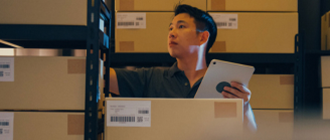
How To Make Freight Shipments Work For Your Small Business
Your next bulk shipment might qualify for freight. Here are our top five tips for freight shipping as a small business.
Read More
4 Ways Small Businesses Can Thrive In A Post-Pandemic World
Consumers expect more personalized delivery services. Here’s how SMEs can meet their expectations and build a resilient and sustainable future.
Read More
Why Logistics Innovations Are Important To Fight The Next Pandemic
The industry is using lessons learned to help eliminate underlying healthcare vulnerabilities and improve speed and efficiency of relief efforts.
Read More